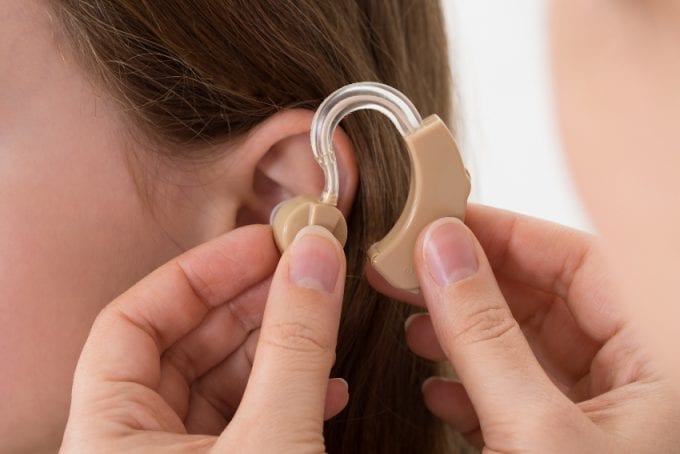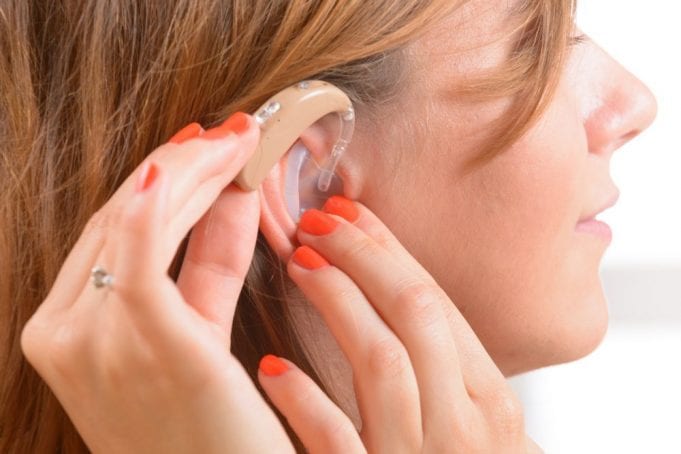The ear is the one part we heavily rely on. It is through hearing that we decide on actions to take or rather not embrace. What about those in lack of this capability of hearing? How are they to survive? That is where hearing aid comes in handy; it is no wonder that most people have to learn sign language, as the hearing aid is out of their budgets.
Financial constraints are the greatest hindrance when it comes to accessing hearing aids. Many consumers who are in need have to survive without hearing aids since their finances do not add up. However, the hearing devices are accessible without having to break the bank. Visit this site for hearing aid financing online options to lessen the rigorous application process. Find out how to acquire them, as illustrated below.
Make use of credit

To purchase a hearing aid, you can apply for credit towards medical expenses at a discounted rate. You can look out for companies that offer an introductory interest rate of 0% to new clients. This allowance lasts over a specified period, depending on the entity. Customers should find out how crediting schemes operate before venturing into one. To begin with, first, determine the capacity that you can part with monthly.
Paying up, during the introductory period, will save you, immensely. Several sites to be on the lookout for: are Credit Karma and Care Credit. They focus on healthcare financing and offering you a window to enjoy the interest’s introductory rates. For instance, let us explore the Care Credit scheme. It is a preloaded credit card; you can apply towards medical expenses with a discount. The company is the largest in the nation. It offers interest alternatives for purchases over $200 for terms of 6, 12, 18, and 24 months. The application is through participating in healthcare professional services. Besides, Credit Care’s website is also an option to consider.
Company-sponsored insurance plan

Are you in a company’s paycheck? Most definitely, a health insurance cover spurred your interest to be its employee. If you have hearing difficulty, you will, without a doubt, ensure it is under the insurance cover. Purchasing a hearing aid is costly, and most patients easily learn to find their way without them. However, if you are still working, do not hesitate to ask the Human Resources Manager.
On the same vein, if you are on a private insurance plan, there is a need to upgrade the plan to account for the cost of hearing aids. Drawing out money to cater for hearing aids can be a tussle. That is where insurance cover fills the gap.
Flexible spending account

A Flexible Spending Account allows you to secure untaxed dollars, which get into purchasing the hearing aid. In the situation in which hearing aids are not under the canopy of insurance cover. There are two ways to enjoy the rights of a Flexible Spending Account (FSA). With an FSA card, you can directly carry out your purchase. Alternatively, there is the use of a credit card. The only condition, you need to remember afterward is to submit the invoice for compensation from the FSA.
Cautiously, know that the FSA money relies heavily on time. It has a maturity date, after which it ceases to be viable. There are only two choices at your disposal; use it or end up losing it. A case example is when the biennial insurer’s plan expires after two years, and it calls for appropriate scheduling. Otherwise, you may end up counting losses. Hence, always ensure that the hearing aids are bought with the two-year’ time frame
Use your home

Have you secured a home of your own? Do you have the full documents and rights identifying you as the legal owner? Then, there lies a ray of hope in acquiring a hearing aid. The house guarantees security to qualify the Home Equity Line of Credit (HELOC) to finance the hearing devices. The HELOC is a loan that matures in a specified time, and the home serves as the collateral. Lenders have specific borrowing principles to get assurance on your credibility and ability to repay a loan. They set their interest rates, repayment schedule, and other core aspects of the mortgage.
Purchase of refurbished hearing aids

The cost of buying a hearing aid is so expensive to meet the hearing needs of all people. Therefore, purchasing refurbished hearing aids come in handy when you are short on finance. In most instances, these hearing aids have been demonstration models or worn for a short period. They are recycled and sold out at a lower price. There is no need to panic because one of the world’s leading laboratories restores them to a perfect working condition and refurbishes them. It is merely the fact that they are sold, not as new.
Some of the manufacturers to look out for are Oticon, Phonak, Siemens, Resound, and Starkey. With a six-month warranty and a 30-day guarantee of money, you have no reason to doubt the quality.
Benefits at the workplace

Are you on an employee who is still in a company’s payroll? If so, this is what suits you. With a health benefits package that has a Flexible Spending Account (FSA), you can enjoy banking up to $2500 tax-free dollars, annually. In the end, this caters for the hearing aids, prescribed medicines, and other costs based on health. The embedded FSA entails hearing exams and hearing aids. This is inclusive of the buying and maintenance costs.
Takeaway
Hearing aids can be affordable and cover a significant milestone in your life. Purchasing a hearing aid is a big move. Take time to invest in researching payment options. Later on, get to reap the benefits by improving your hearing. A profession at the nearby healthcare clinic will advise you through the financing options to get started on financing a hearing aid. If you think that not purchasing the medical devices is saving, think again. Going with untreated hearing loss, may exhaust your money and put your health at a cost.







